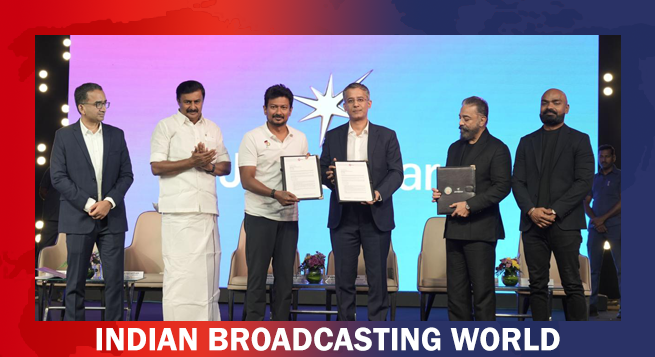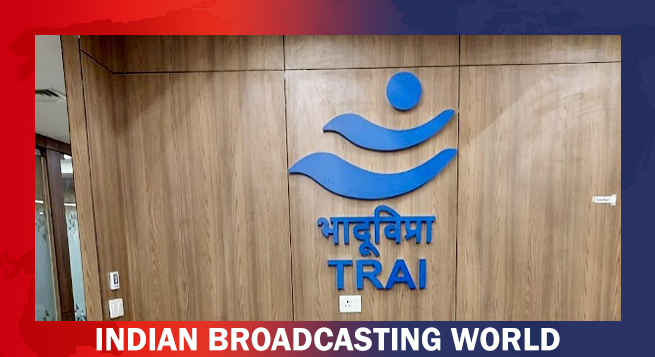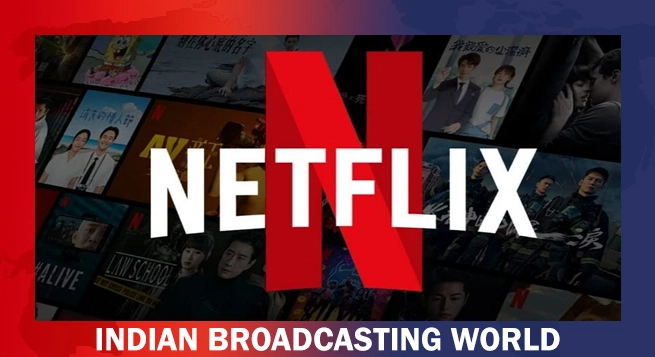A legal dispute between Bollywood producer Vashu Bhagnani and streaming giant Netflix has escalated, prompting an investigation by the Economic Offences Wing (EOW) of the Mumbai Police. Bhagnani, founder of Pooja Entertainment, has alleged that Netflix and its associated companies have “cheated” him in a deal related to the Subscription Video on Demand (SVOD) rights of three films.
The films in question are ‘Hero No 1,’ ‘Mission Raniganj,’ and ‘Bade Miya Chote Miya.’ Bhagnani claims that despite granting Netflix the streaming rights for these films, he has yet to receive a sum of INR 47.37 crore in payments, The Economic Times reported.
Bhagnani’s complaint specifically names Los Gatos Production Services India, Zoo Digital India, and several executives from both companies. He claims that Pooja Entertainment, his production house, was coerced into renegotiating the terms of the deal and forced to deliver one of the films to Zoo Digital India. Subsequently, Bhagnani alleges that this film was leaked online before its theatrical release, resulting in severe financial and reputational damage.
The crux of the complaint revolves around the non-payment of INR 47.37 crore, which Bhagnani asserts Netflix owes him. SVOD (Subscription Video on Demand) is a streaming business model where customers pay a recurring subscription fee to access a service’s content.
Netflix has categorically denied all allegations made by Bhagnani. In a statement provided to Economic Times, a spokesperson for Netflix claimed the allegations were “completely unfounded” and emphasized that Pooja Entertainment in fact owes money to Netflix, not the other way around. The spokesperson further added, “We have a strong track record of partnerships with the Indian creative community and are working with the authorities to resolve this dispute.”
The Economic Offences Wing is currently investigating the complaint and has summoned executives from Los Gatos Production Services India for questioning. Depending on the findings of the investigation, the preliminary inquiry could be converted into a First Information Report (FIR), which would formalize the case against Netflix and the other parties involved.
This legal battle could have broader implications for the Indian film industry, especially with streaming platforms like Netflix playing an increasingly central role in the distribution and promotion of films. As Bollywood continues to rely heavily on OTT platforms, disputes like these could impact future collaborations between filmmakers and streaming services.
Pooja Entertainment, under Bhagnani’s leadership, has been a prominent player in the Bollywood industry, producing several hit films over the years. The company’s decision to pursue legal action against a major international player like Netflix reflects the gravity of the financial loss they claim to have suffered.
In his complaint, Bhagnani has cited not only monetary damages but also reputational harm due to the premature online leak of one of his films. If proven true, this could set a precedent for other filmmakers to seek reparations in similar cases of streaming-related disputes.
The outcome of this investigation could reshape how OTT platforms and Bollywood production houses negotiate and manage deals moving forward. With streaming platforms taking an ever-greater share of the market for film releases, the financial arrangements between filmmakers and platforms like Netflix are under more scrutiny than ever.
 Govt. not considering rules for use of AI in filmmaking: Murugan
Govt. not considering rules for use of AI in filmmaking: Murugan  DTH revenue slide to ease to 3–4% this fiscal year: Report
DTH revenue slide to ease to 3–4% this fiscal year: Report  At Agenda Aaj Tak, Aamir, Jaideep Ahlawat dwell on acting, Dharam
At Agenda Aaj Tak, Aamir, Jaideep Ahlawat dwell on acting, Dharam  JioHotstar to invest $444mn over 5 years in South Indian content
JioHotstar to invest $444mn over 5 years in South Indian content  Standing firm, TRAI rejects DoT views on satcom spectrum fee
Standing firm, TRAI rejects DoT views on satcom spectrum fee  Diljit Dosanjh wraps shoot for untitled Imtiaz Ali film
Diljit Dosanjh wraps shoot for untitled Imtiaz Ali film  ‘Bhabiji Ghar Par Hai 2.0’ to return with comedy, chaos, a supernatural twist
‘Bhabiji Ghar Par Hai 2.0’ to return with comedy, chaos, a supernatural twist  BBC names Bérangère Michel as new Group CFO
BBC names Bérangère Michel as new Group CFO  ‘Border 2’ teaser to be unveiled on Vijay Diwas
‘Border 2’ teaser to be unveiled on Vijay Diwas  CNN-News18 Rahul Shivshankar takes editorial charge
CNN-News18 Rahul Shivshankar takes editorial charge 









